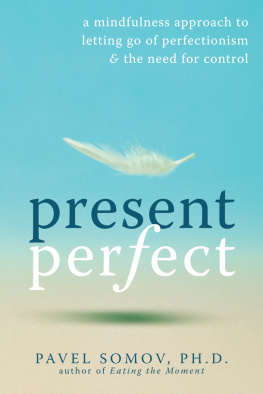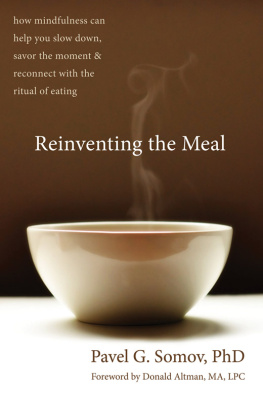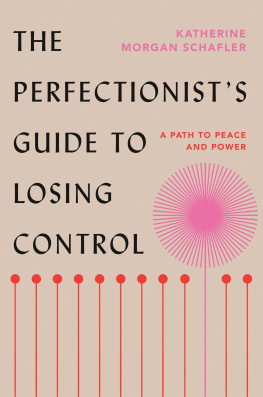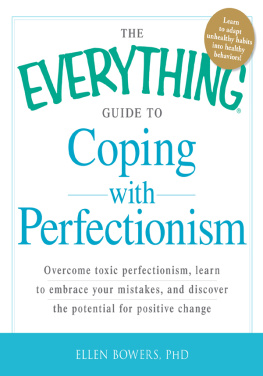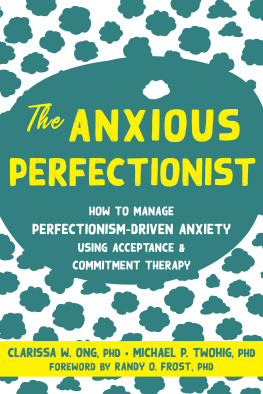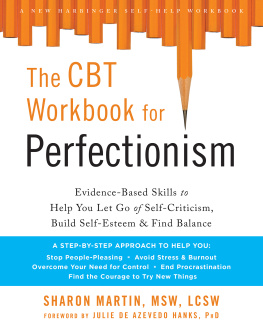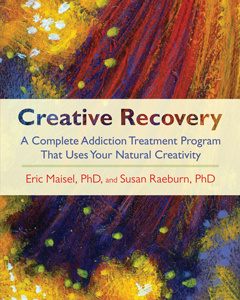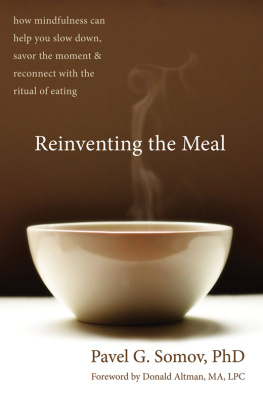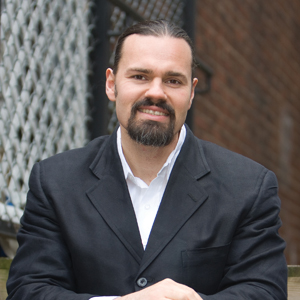Pavel Somov - Present Perfect: A Mindfulness Approach to Letting Go of Perfectionism and the Need for Control
Here you can read online Pavel Somov - Present Perfect: A Mindfulness Approach to Letting Go of Perfectionism and the Need for Control full text of the book (entire story) in english for free. Download pdf and epub, get meaning, cover and reviews about this ebook. year: 2010, publisher: New Harbinger Publications, genre: Science. Description of the work, (preface) as well as reviews are available. Best literature library LitArk.com created for fans of good reading and offers a wide selection of genres:
Romance novel
Science fiction
Adventure
Detective
Science
History
Home and family
Prose
Art
Politics
Computer
Non-fiction
Religion
Business
Children
Humor
Choose a favorite category and find really read worthwhile books. Enjoy immersion in the world of imagination, feel the emotions of the characters or learn something new for yourself, make an fascinating discovery.
- Book:Present Perfect: A Mindfulness Approach to Letting Go of Perfectionism and the Need for Control
- Author:
- Publisher:New Harbinger Publications
- Genre:
- Year:2010
- Rating:4 / 5
- Favourites:Add to favourites
- Your mark:
Present Perfect: A Mindfulness Approach to Letting Go of Perfectionism and the Need for Control: summary, description and annotation
We offer to read an annotation, description, summary or preface (depends on what the author of the book "Present Perfect: A Mindfulness Approach to Letting Go of Perfectionism and the Need for Control" wrote himself). If you haven't found the necessary information about the book — write in the comments, we will try to find it.
This brilliant and practical new book is designed to help alleviate the excess stress and dissatisfaction of perfectionism, one of the main practices of the extremely popular, if unheralded, religion I lovingly call Control Freakism. Pavel Somov gives us numerous helpful awareness exercises, conscious inquiries, insights, mindfulness practices, original perspectives, and penetrating ideas, all conducive to helping us free ourselves from this tyrannical inner demon and experience the radiant reality of things just as they are. Acceptance has its own transformative magic, and I heartily recommend this work to all who want to transform, awaken, and edify.
Lama Surya Das, founder of Dzogchen Meditation Centers and author of Awakening the Buddha Within
Even those of us with a lot of self-help reading under our belts will experience many a-ha moments while immersed in Present Perfect. Somov s approach is highly logical, creative, resourceful, and compassionate. Never once will you feel judged; instead, you ll feel understood. I highly recommend this valuable resource to therapists and anyone with perfectionist tendencies.
Dina Cheney, author of Tasting Club and Williams-Sonomas New Flavors for Salads
Rarely does a work of art like Present Perfect fall upon ones desk. This book allows us to transform existential pain caused by our need to be perfect. This book is abundant with tools and ideas that equip the reader to resolve guilt, shame, and perfectionism. Once you accept and surrender your perfectionism, the magical paradox of mindfulness as a healer will unfold.
Ronald A. Alexander, Ph.D., executive director of the Open Mind Training Institute and author of Wise Mind, Open Mind
Pavel Somov offers an intelligent, witty, and compassionate critique of perfectionism and makes a compelling case that life is already perfect. I found this book to be thoroughly enjoyable and personally and professionally useful from the first page. I feel as comfortable recommending this book to my colleagues as I do to my patients and am confident that both will find it of tremendous value in their lives. Since perfectionism is often the other side of compulsive and addictive behavior, this book will be relevant to all who seek more moderation and balance in their lives.
Andrew Tatarsky, Ph.D., clinical psychologist in New York City specializing in treating addictive behavior and author of Harm Reduction Psychotherapy
Pavel Somov: author's other books
Who wrote Present Perfect: A Mindfulness Approach to Letting Go of Perfectionism and the Need for Control? Find out the surname, the name of the author of the book and a list of all author's works by series.

